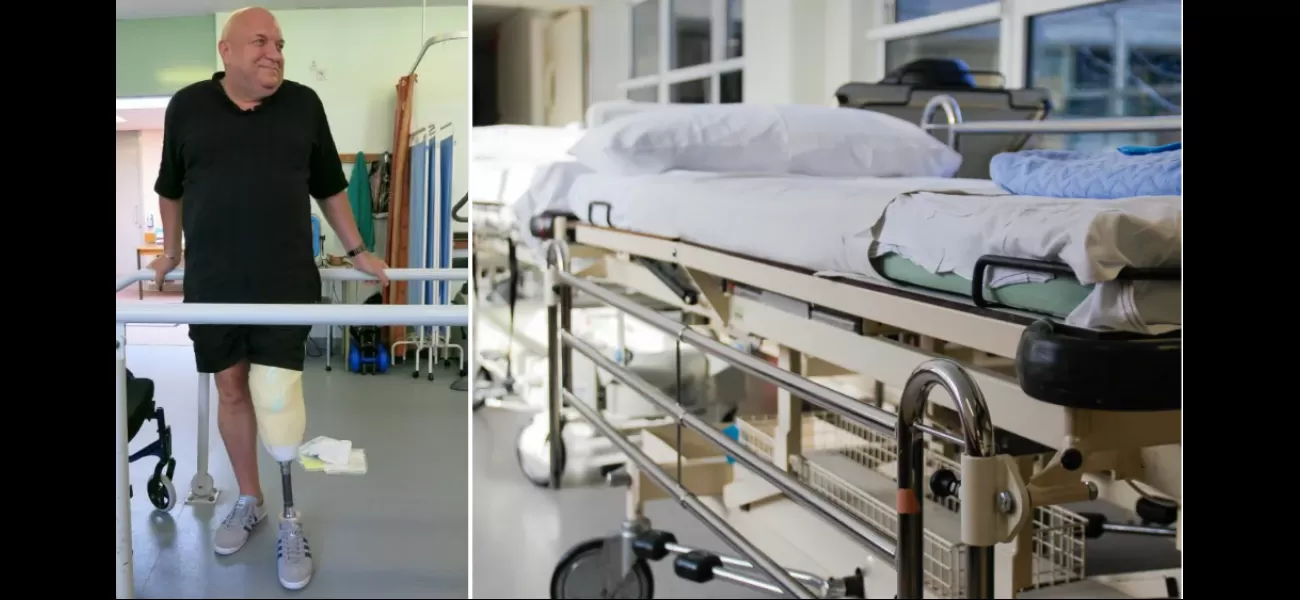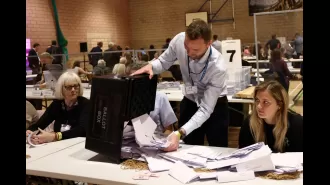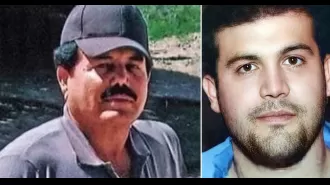A&E was an unfamiliar sight for me when my father was catheterized in a closet.
The NHS is in a precarious position.
June 4th 2024.

The chaos and devastation that unfolded at the A&E department on Monday 13 May was something I had never experienced before. My father, Colin, was always a top priority for his doctors due to his deteriorating health. It all began with a football accident in his twenties that led to osteomyelitis, a bone marrow infection, in his left leg. Years later, he was involved in a car accident that further damaged his leg. This resulted in decades of chronic pain, numerous hospital stays, and over 29 surgeries. He even had to have his left leg amputated in 2013. To manage his pain, he had to take 25 tablets a day. In November 2022, he almost lost his life to sepsis while in the hospital.
Throughout his 50 years with the NHS, my father had always received excellent care, so I never expected him to pass away without any dignity. On that fateful Monday afternoon, my 65-year-old father was vomiting and experiencing severe abdominal pain. We called for an ambulance and the amazing staff arrived much quicker than we had anticipated. However, once we reached the hospital, we were stuck in the back of the ambulance for almost an hour due to the overcrowding at A&E.
There were multiple other ambulances also waiting outside with patients, which we were told was a common occurrence on Mondays. Our family is forever grateful to the NHS for giving us an extra 20 to 30 years of memories with my dad. But on that day, the situation was beyond chaotic. There were no available beds or seats, and the ambulance that had brought my dad was unable to leave as it was his only place to stay.
After a patient was finally discharged, we were able to make it to the ambulance arrivals area, which was just a corridor by the entrance. It was not a warm day, and the scene we encountered was reminiscent of a war zone. Every inch of the floor and walls was covered with hospital beds, and there were patients everywhere. It was like the Covid wards we had seen on the news. Despite the overwhelming situation, a tired but cheerful nurse came to take my dad's blood pressure, and a doctor arrived after an hour. He had to assess my dad's protruding belly and bladder in front of hundreds of people, which my mum was not pleased about. The doctor informed us that there was fluid and they needed to find somewhere private to drain it.
In the absence of any available space, the doctor eventually found a storage cupboard that was big enough to fit my dad's trolley. The cupboard was full of oxygen tanks, but at least it had a working light. My mum had to wait outside while my dad had a catheter inserted to drain the fluid. During the procedure, various staff members wandered in and out, seemingly unfazed by the situation. They apologized for disturbing us but did not offer any further pleasantries.
It took five hours for a cubicle to become available for my dad, but by then, his condition had deteriorated. He was diagnosed with a blockage in his small intestine and an infection. Despite his excruciating pain, he received no medication and spent his final days in agony as the infection took over his body. It was only on Friday morning when he was finally diagnosed with sepsis that we realized he was unresponsive. He passed away that afternoon in a four-bed bay with the curtains pulled around him. The private room that was being prepared for him was still occupied.
My mother does not blame the war zone-like conditions for my father's death. She understands that the staff were overworked and doing their best. Despite losing her husband of 43 years, she could not fault the NHS. The catheter and the cupboard were not to blame for his death, but perhaps if he had received proper care sooner, he could have been saved. Unfortunately, we will never know for sure.
Our family owes everything to the NHS, as they gave my father an extra 20 to 30 years of life that he would not have had without their intervention and free treatment. He was not catheterized in a cupboard because no one cared. It was because the doctors cared so deeply that they did what was necessary, regardless of the situation. He was a patient in need, and they helped him. However, without proper funding, adequate facilities, and well-treated staff, the NHS may not be able to continue providing the same level of care in the future. It is like a death from sepsis, with stages of destruction. If we do not take action now, it may be too late to save our beloved NHS.
My father's death was a heartbreaking loss for our family, but it also highlighted the struggles the NHS is facing. We are forever grateful for everything they did to try and save him, and I want to see the NHS saved as well. Do you have a story you would like to share about your experience with the NHS? Please share it in the comments below.
Throughout his 50 years with the NHS, my father had always received excellent care, so I never expected him to pass away without any dignity. On that fateful Monday afternoon, my 65-year-old father was vomiting and experiencing severe abdominal pain. We called for an ambulance and the amazing staff arrived much quicker than we had anticipated. However, once we reached the hospital, we were stuck in the back of the ambulance for almost an hour due to the overcrowding at A&E.
There were multiple other ambulances also waiting outside with patients, which we were told was a common occurrence on Mondays. Our family is forever grateful to the NHS for giving us an extra 20 to 30 years of memories with my dad. But on that day, the situation was beyond chaotic. There were no available beds or seats, and the ambulance that had brought my dad was unable to leave as it was his only place to stay.
After a patient was finally discharged, we were able to make it to the ambulance arrivals area, which was just a corridor by the entrance. It was not a warm day, and the scene we encountered was reminiscent of a war zone. Every inch of the floor and walls was covered with hospital beds, and there were patients everywhere. It was like the Covid wards we had seen on the news. Despite the overwhelming situation, a tired but cheerful nurse came to take my dad's blood pressure, and a doctor arrived after an hour. He had to assess my dad's protruding belly and bladder in front of hundreds of people, which my mum was not pleased about. The doctor informed us that there was fluid and they needed to find somewhere private to drain it.
In the absence of any available space, the doctor eventually found a storage cupboard that was big enough to fit my dad's trolley. The cupboard was full of oxygen tanks, but at least it had a working light. My mum had to wait outside while my dad had a catheter inserted to drain the fluid. During the procedure, various staff members wandered in and out, seemingly unfazed by the situation. They apologized for disturbing us but did not offer any further pleasantries.
It took five hours for a cubicle to become available for my dad, but by then, his condition had deteriorated. He was diagnosed with a blockage in his small intestine and an infection. Despite his excruciating pain, he received no medication and spent his final days in agony as the infection took over his body. It was only on Friday morning when he was finally diagnosed with sepsis that we realized he was unresponsive. He passed away that afternoon in a four-bed bay with the curtains pulled around him. The private room that was being prepared for him was still occupied.
My mother does not blame the war zone-like conditions for my father's death. She understands that the staff were overworked and doing their best. Despite losing her husband of 43 years, she could not fault the NHS. The catheter and the cupboard were not to blame for his death, but perhaps if he had received proper care sooner, he could have been saved. Unfortunately, we will never know for sure.
Our family owes everything to the NHS, as they gave my father an extra 20 to 30 years of life that he would not have had without their intervention and free treatment. He was not catheterized in a cupboard because no one cared. It was because the doctors cared so deeply that they did what was necessary, regardless of the situation. He was a patient in need, and they helped him. However, without proper funding, adequate facilities, and well-treated staff, the NHS may not be able to continue providing the same level of care in the future. It is like a death from sepsis, with stages of destruction. If we do not take action now, it may be too late to save our beloved NHS.
My father's death was a heartbreaking loss for our family, but it also highlighted the struggles the NHS is facing. We are forever grateful for everything they did to try and save him, and I want to see the NHS saved as well. Do you have a story you would like to share about your experience with the NHS? Please share it in the comments below.
[This article has been trending online recently and has been generated with AI. Your feed is customized.]
[Generative AI is experimental.]
0
0
Submit Comment





